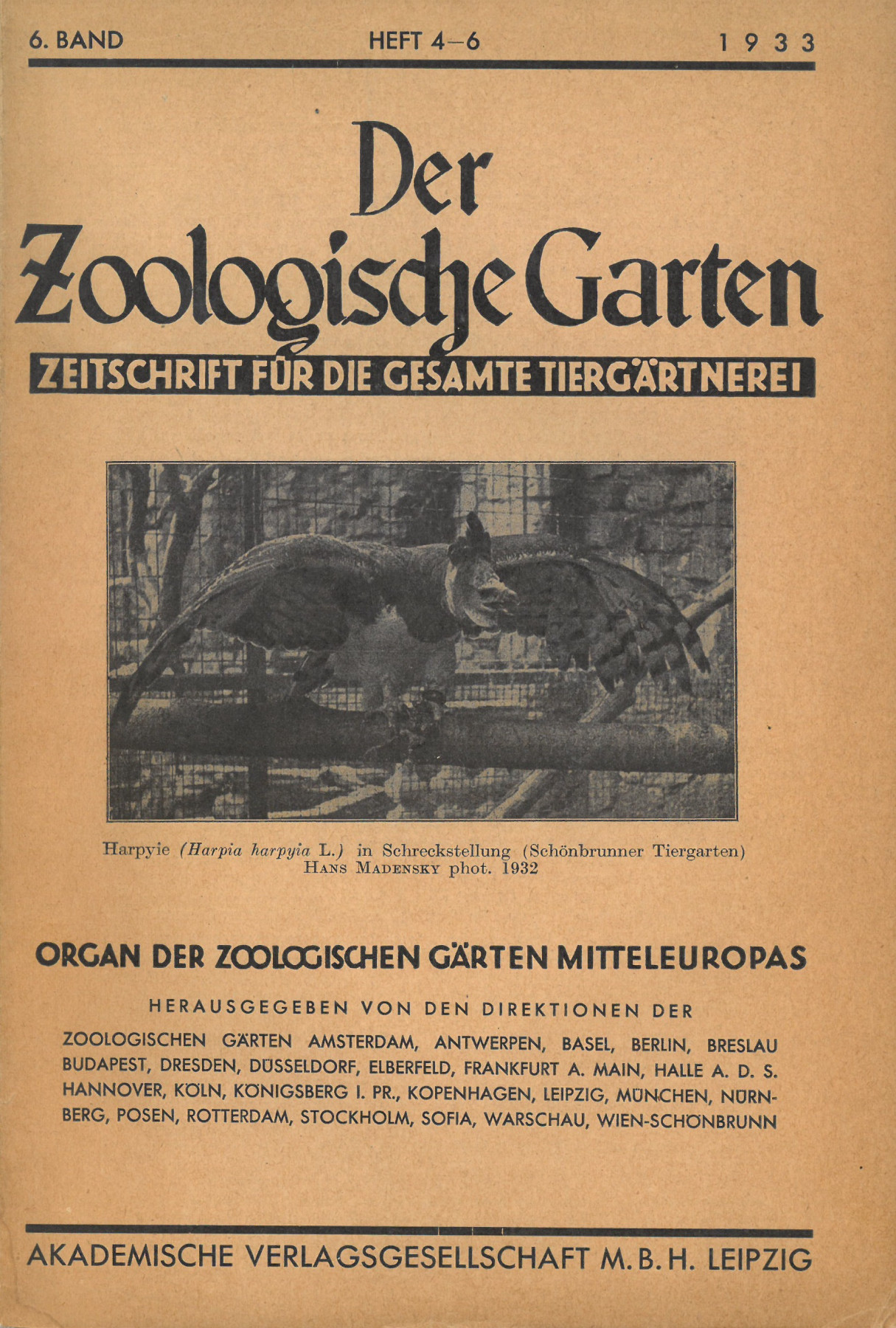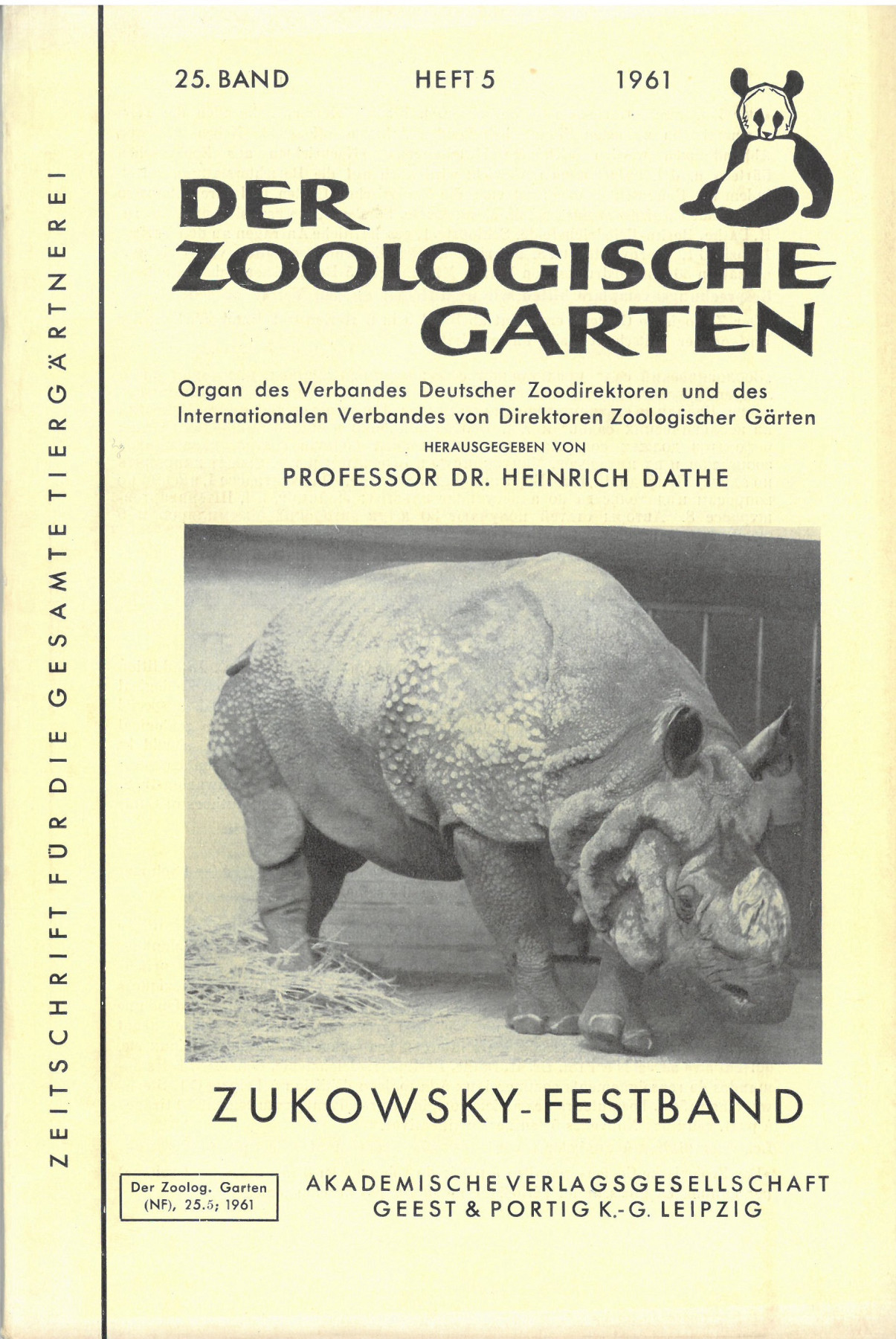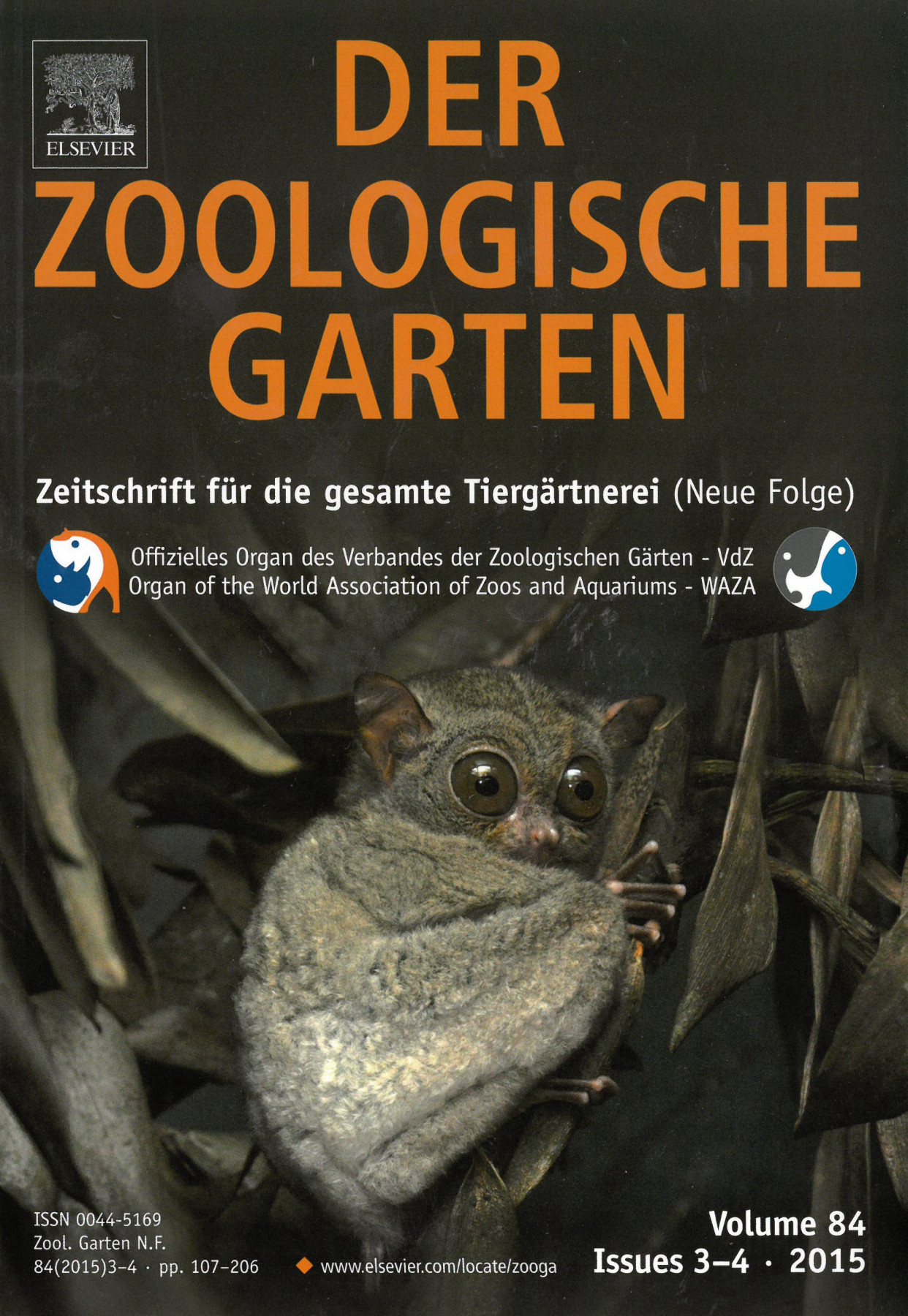


Cover pages of the journal Der Zoologische Garten from 1933, 1961, and 2015.
Zoo managers in Germany and around the world have always depended on exchanging information. Then, as now, much of the most important information required for the care of animals cannot be found in the general zoological and biological literature.
This was particularly the case during the second half of the 19th century when many zoos were being established. At the time, knowledge about proper housing conditions and the correct way to  feed zoo animals was very limited. Often the first order of business was to determine the species of the incoming animal. It was very important for the small circle of zoo directors – at the time all of them still male – to have the benefit of exchanging observations and tips on successful animal husbandry practices, i.e., those which prolonged the lives of the animals.
feed zoo animals was very limited. Often the first order of business was to determine the species of the incoming animal. It was very important for the small circle of zoo directors – at the time all of them still male – to have the benefit of exchanging observations and tips on successful animal husbandry practices, i.e., those which prolonged the lives of the animals.
Consequently, in 1859, the recently established zoo in Frankfurt am Main began publishing a journal called Der Zoologische Garten. In 1888, they added the subtitle “Mouthpiece of the Zoological Gardens of Germany”. The journal was primarily concerned with zoo animal husbandry, rather than with scientific research.
After  World War Two the zoo in Leipzig took over publishing Der Zoologische Garten. From the 1950s, the journal became the representative platform of the Association of German Zoo Directors/Association of Zoological Gardens, as well as of the
World War Two the zoo in Leipzig took over publishing Der Zoologische Garten. From the 1950s, the journal became the representative platform of the Association of German Zoo Directors/Association of Zoological Gardens, as well as of the  World Association of Zoos and Aquariums. After being discontinued again in 2018, the journal was relaunched in 2019, and has since served as the mouthpiece for both associations, under the title Der Zoologischer Garten: Zeitschrift für die gesamte Tiergärtnerei.
World Association of Zoos and Aquariums. After being discontinued again in 2018, the journal was relaunched in 2019, and has since served as the mouthpiece for both associations, under the title Der Zoologischer Garten: Zeitschrift für die gesamte Tiergärtnerei.
The contributions to the journal tend to discuss subjects such as the breeding of animals in human care, veterinary medicine, ethology, and zoo architecture. Reports on the zoos’ own practices are still the focus of most contributions. This is probably related to the fact that even today, the research literature on keeping domestic and small animals is much more extensive than that which addresses zoo animal husbandry, and there is thus a need for a means of exchange in this field.